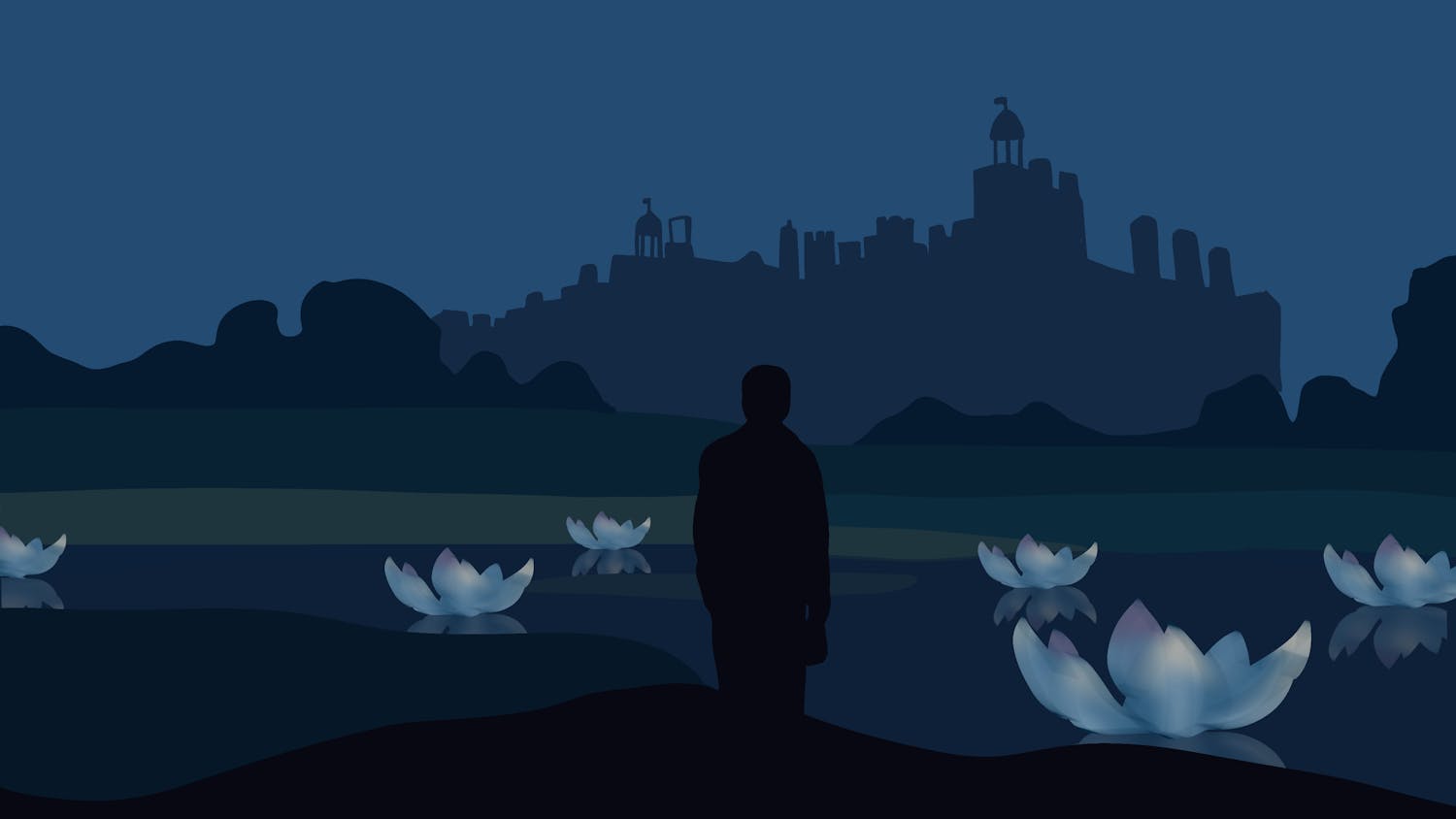This was not part of the plan.
I had every intention of watching “The Post” and writing my review over the long weekend. For a variety of reasons, my plan did not pan out, so my best alternative became Netflix’s recent hit film, “Bright.” Despite the dearth of positive critical reactions, I was nonetheless intrigued. For one thing, the concept is appealing: a gritty crime drama set in an alternative universe where humans coexist with fantasy creatures like orcs, elves, centaurs and fairies. Although I loathed director David Ayer’s most recent film, last year’s appropriately named “Suicide Squad,” I actually enjoyed his 2012 buddy-cop drama “End of Watch,” which starred Jake Gyllenhaal and Michael Peña. The potential of that film combined with the potential of “Bright’s” premise made me wonder if the critical consensus on Ayer’s newest outing might be wrong.
If only.
Los Angeles police officer Daryl Ward (Will Smith) is paired with the nation’s first ever orcish police officer, Nick Jakoby (Joel Edgerton), who has to cope with his human co-workers’ inevitable prejudice that his species is criminal by nature. After more than 30 minutes of meandering setup, the plot finally kicks into high gear when the two officers stumble onto a crime scene and find a magic wand that can only be touched by special individuals known as “Brights.” The ensuing drama plays out predictably, like a horrific combination of “True Detective” and “Dungeons and Dragons” fanfiction.
Before we go any further, we need to address the elephant in the room: The film is, at its core, a thinly veiled allegory for racism. More specifically, it is trying to comment on racial tensions in America right now. The screenplay explicitly references Black Lives Matter in a key line of dialogue, implying that the film has something important to say about the turbulent circumstances of President Donald Trump’s America. Indeed, I have no doubt that screenwriter Max Landis, with his myopic vision, thinks he has something relevant to say. But the execution of his script ruins any good intentions, resulting in a film that postures as anti-racist while peddling decidedly racist stereotypes. While the dehumanizing portrayal of people of color is depressingly run of the mill, the depiction of the orcs is even more muddled. The setup seems clear enough, casting the orcs as the minority group against whom the humans have deep-rooted prejudices that must be overcome. But, for whatever mind-boggling reason, Ayer and Landis spend the entire film demonizing every orc who isn’t Jakoby, portraying them all as violent, unsympathetic gangsters. Rather than demonstrate how baseless the prejudice against the orcs is, the film does its darnedest to validate it.
This particular problem is exacerbated by the fact that Jakoby, despite having the most compelling internal conflict of all the characters, isn’t even the protagonist — Ward is. Of course, this isn’t really abnormal. Films dealing with oppression often tend not to focus on the oppressed, and instead cast a sympathetic member of the oppressive group as the main character because filmmakers assume audiences will have an easier time relating to him or her. Not only is this paradigm deeply problematic, but it is made worse in “Bright” because Ward is not even sympathetic. He alternates between standing up for Jakoby and being as cruel as his colleagues, but none of it really matters because he is miserable company for a two-hour film. Smith is one of the most likeable actors working today, but he seems, almost paradoxically, utterly incapable of infusing even a hint of decency into this character.
The only good performance comes from Edgerton, although sadly the film too often makes him the butt of a joke. Moreover, his entire character arc revolves around his need to transform from the film’s only moral and sensitive character into another jerk like Ward. This almost makes sense because the film never frames Ward’s abusive, violent and aggressive behavior as a character flaw but rather as an indication that he is cool and worthy of our admiration. “Toxic masculinity” is too generous of a term to apply toward a film that manages to venerate this character while maintaining a completely straight face. The film’s proclivity for macho-nonsense does not just come through the characters but also in the excess of mindless action scenes. The middle of the film is plagued by shootout after shootout, each of which is awful in distinct ways. All of the tension is drained from the action more than once, just so the characters can spout witty but ineffective dialogue at each other. At other moments, the action is visual sludge as the editing completely loses track of where the characters are relative to each other and what exactly they are all doing.
I want to clarify that I take no pleasure in the fact that “Bright” is as genuinely awful as it is. Again, the premise is interesting enough and none of this is to say that one cannot address complex social and political issues in a story filled with fantasy elements. The “Harry Potter” series generally does a pretty good job at addressing prejudice with its Mudblood-Pureblood dichotomy. It works in that story because the message is not confused or contradictory but simple and consistent. None of that can be said for “Bright.”
Yet it turns out that the film has experienced something of a reverse “The Last Jedi;” critics hate it, but audiences love it. And that’s great. I’m happy people had a good time while watching it. I just could not. The film pretends it has something deep to say and primes your brain for a thoughtful experience, but it all too quickly devolves into a cacophony of nonsense.



